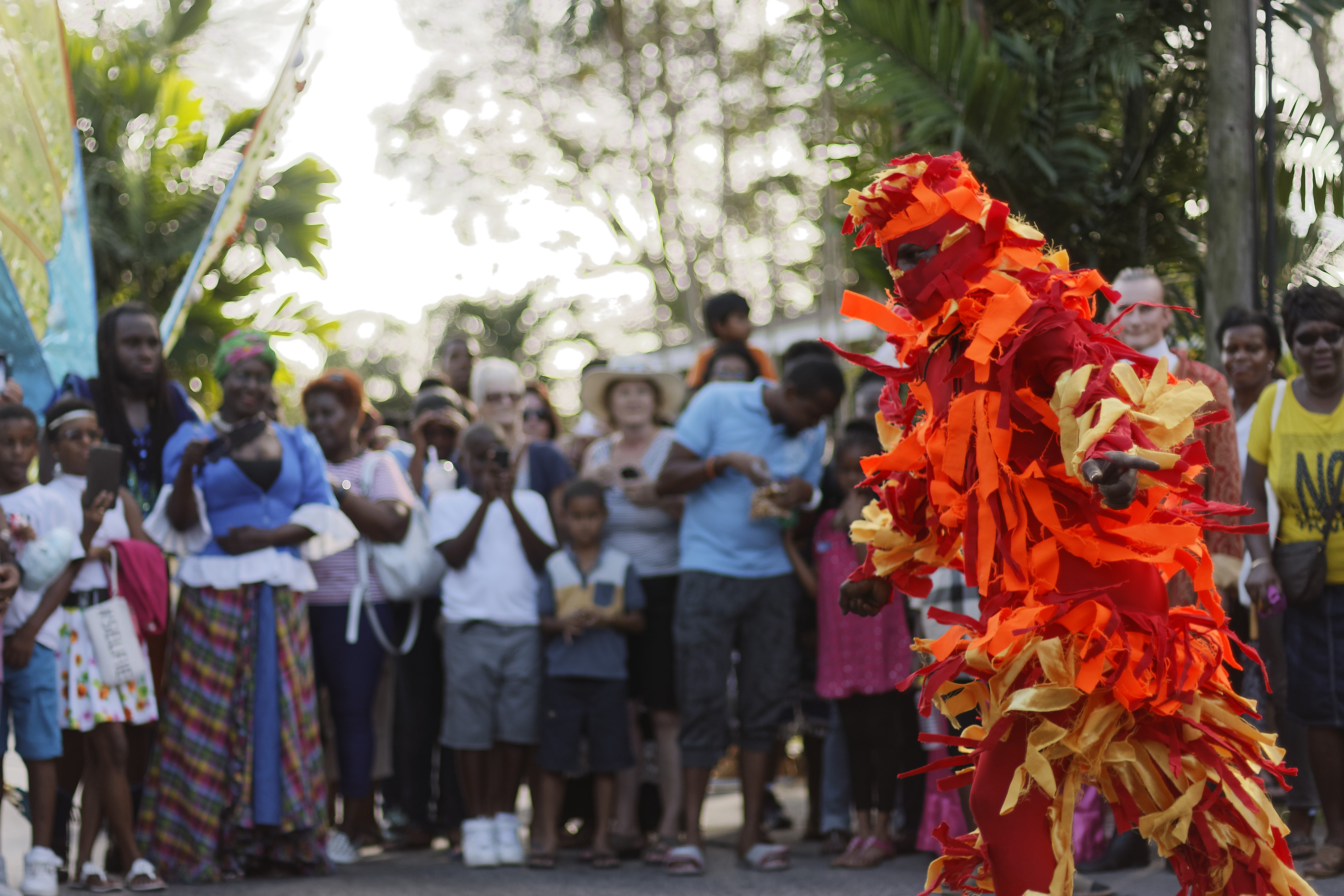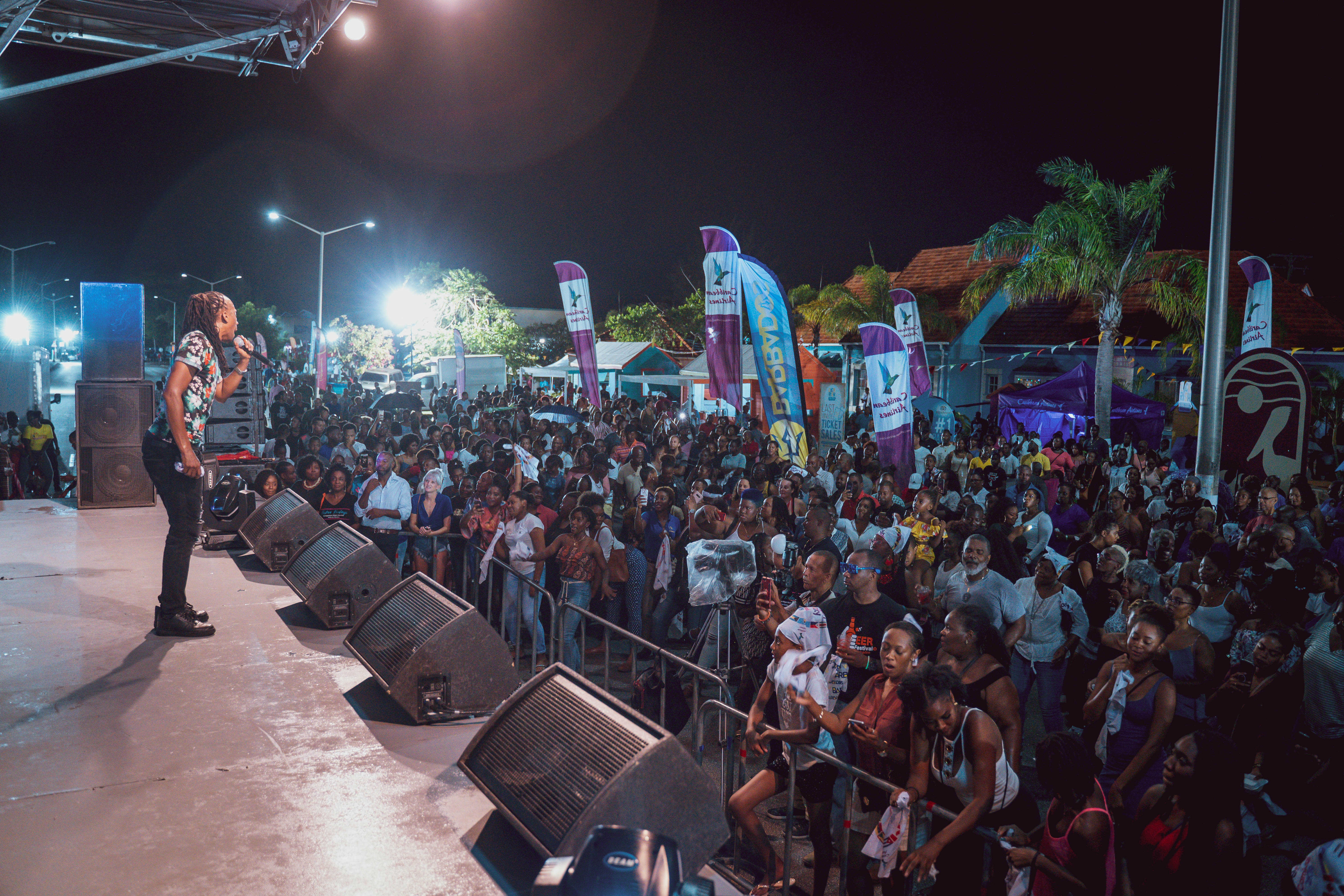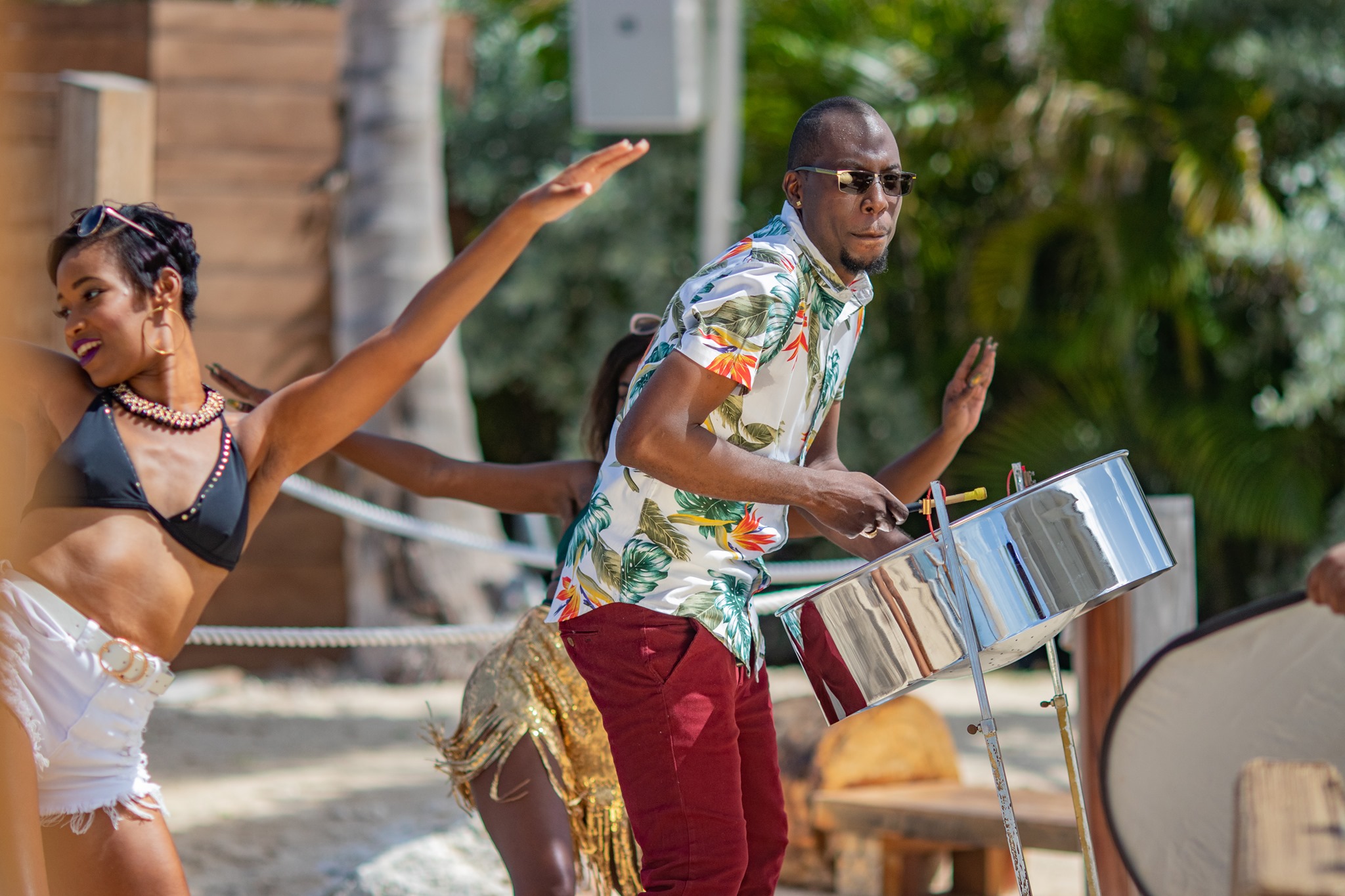The Caribbean music style has pioneered much of the world’s unique sounds, and Barbados’ music is no exception. Soca, Calypso, jazz, spouge, reggae and dancehall have found a home here and you can be sure to hear the diverse rhythms year-round. Much of our music has emerged from the Caribbeans’ history of colonialism and therefore those vibrant, rich, sunny melodies are the result of merging classical sounds with Afro-based beats. Soca music and Calypso are crucial to our Crop Over festival, we embrace our reggae roots in April and we showcase the steel pan and the sounds of the tuk band throughout the island all year long.
The Tuk Band & The Land Ship
Barbados is noted to have pioneered its own indigenous musical form Tuk - Tuk Music of the Barbados Tuk Band. Although not as popular as it was in former years, tuk band music or rukatuk is symbolic of revolution in Barbadian cultural music and history. The genre emerged from colonialism after traditional Afro-based drums were banned, as in Trinidad. Merging European military-based instruments with the rhythms of Afro-based music, tuk-band music emerged. Instruments include a double-headed bass drum, the pennywhistle which has origins in ancient China, the triangle, flute and snare drum. The Tuk band evolved parallel to the Barbados Landship, a dance group to complement their sounds. Together the Tuk Band and Landship reflect the colonial military structure of the ruling class, who did not allow Afro-Barbadians to participate in their regiment. The Africans responded by creating their own cultural regiment and as a result, Tuk music and the Barbados Landship not only reflected revolution but order, discipline and unity among the oppressed people of that period. These musicians tell a story through their songs, particularly by having costumed characters, who are indigenous to our culture accompany them these include:
- Dancing Mother Sally (An amusing character said to represent the fertility of our ancestors, traditionally played by a masked man, dressed as a woman with pronounced buttocks, hips and bosom
- The acrobatic Shaggy bear ( symbolic of an African witch doctor)

Spouge
‘ Spouge’ music is another Barbadian sound, indigenous to the island. Developed by Jackie Opel in the 1960s it fuses early Jamaican dancehall music with Trinidadian Calypso but is also influenced by classical music and traditional hymns. Key instruments are the cowbell, bass guitar, trap set and other various electronic instruments. Although this style of music is no longer heavily practised it remains a key aspect of Barbados’ musical culture and was very popular during the 1960s. Many older Barbadian men are eager to tell stories of Spouge’s origins, for those interested in a historic snippet. Jackie Opel belonged to a band called the Troubadours and began his musical career singing at Coconut Creek club in St James. However, his early death brought a halt to his career. Today his music is still popular on AM Radio on Sundays and at Karaoke Bars.
Soca & Calypso
If you are lucky to be on the island during the summer, you are just in time for Crop Over and the rich melodies of Soca and Calypso.

Crop-Over is the biggest festival on the island, occurring during the summer season. It emerged from Barbados’ history of enslavement and colonialism where after the crop season was finished, enslaved persons began to celebrate the harvest period by emulating the grand parties of the colonial class, fusing their customs with our Afro-based traditions and forming something completely new. There was traditionally a Crop King and Queen (initially a means of rewarding the most productive male and female for the crop season. Today individuals vie for this title in massive elaborate costumes, intricately designed to showcase various aspects of the crop) and on Grand Kadooment day our big parade of colourful costumes is infused with calypso music.
Soca music is heard primarily during Crop Over, which occurs in summer from June to August. For us, it is known as party music and emphasizes undulating, fast-paced rhythms and high melodies giving listeners a burst of energy and an urge to whine ya waist or wuk-up (fast-paced hip-rotations: a type of dancing which emerged from the enslaved population during Barbados’ colonial period).
Calypso or ‘Kaiso’ is Soca’s more well-behaved cousin. Known particularly for its commentary Calypso combines the structure of classical European sounds with the vibrations of Afro-based music. Where Soca is remembered for its sweet melodies, Calypso is noted for its sharp punchlines and criticisms of Barbadian life & politics; like Soca, it is a prominent musical form during Crop Over. Calypso music is featured in two major events: a Junior Calypso Monarch and a Pic-O-de-Crop Calypso Competition. These competitions host weekly rounds until the grand finale. Eighteen competitors go towards the semi-finals while eight succeed to the finals, where they compete with the competition’s previous winner. While Pic-O-de-Crop is for seasoned artists, Junior monarch is focused on the youth, ensuring the Calypso tradition is passed on to the younger generation.
Local Reggae
Barbados also hosts a reggae festival during April-May, where primary events are reggae on the hill and reggae on the beach. Although reggae originated in Jamaica it is widely embraced here by fans and artists who have made it their own. The Barbados reggae festival began in 2005 but it has evolved into one of the most popular festivals on the island. The major event ‘Reggae on de Hill’ is usually held at Farley Hill National park. Reggae’s positivity is child-friendly and welcoming to a diverse range of people-made popular by Bob Marley and the Rastafari movement. Well-known artists such as Sizzla, Luciano, Admiral Tibet and Buju Banton have graced the stage in the past. So if you’re eager to catch a glimpse of these stars, be sure to visit Barbados during our reggae festival!
Steel Pan
Another not-to-miss musical event is ‘Pan on de Sand’ usually held on Brandon’s Beach. Steel-pan music originated in Trinidad, but is taught widely in schools across Barbados and has become a favourite for locals and tourists. It’s roots lie in colonialism and the banning of drums, where Afro-Trinidadians were forced to search for alternative ways to express themselves; as a result, a steel-pan sounds like a steel drum! The bright, airy rhythms have been adopted by overseas artists to replicate an ‘island sound’ but here in Barbados, at ‘Pan on de Sand’ you can experience it authentically. Sit back and enjoy the sun’s gaze on the white sands of Brandon’s Beach; drink something sweet and enjoy the rich melodies of steel-pan music.

A visit to Barbados is a musical landscape like no other - immerse yourself in sweet, Caribbean cultural vibes, history and storytelling - intangible Barbadian souvenirs. Just before Spring, feel free to partake in our reggae festival with your loved ones; for history, buffs getting in touch with the Barbados Tuk Band or someone knowledgeable on Spouge music will stay imprinted on your memory. Don’t be shy and let these musical treats pass you by, experience our sweet Caribbean island history through our musical vibes today!